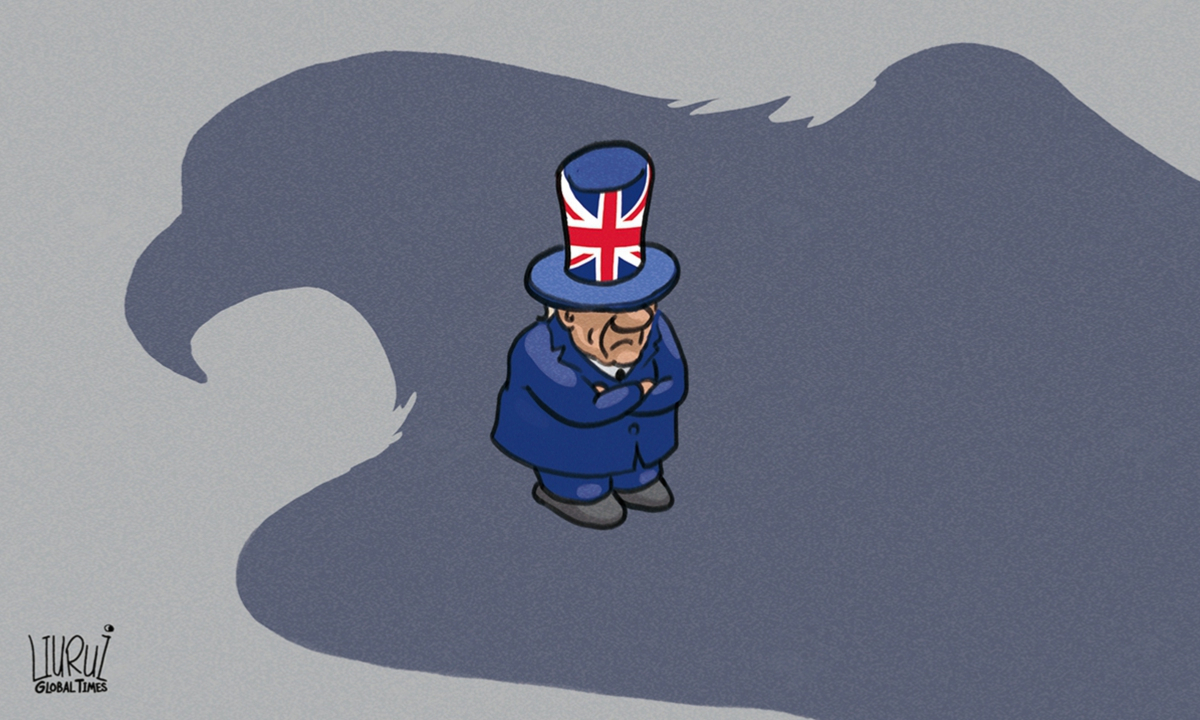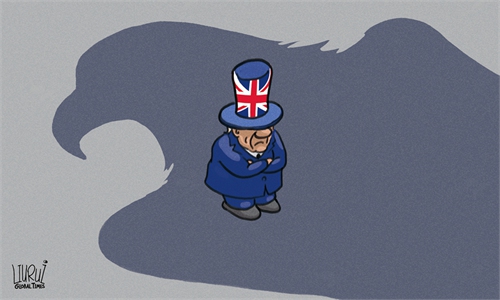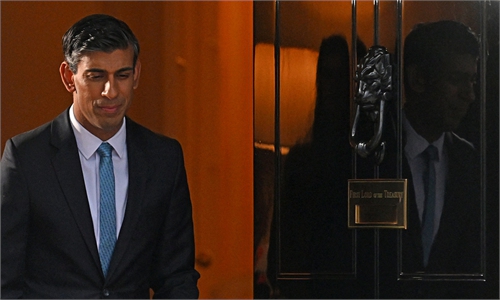
Illustration: Liu Rui/GT
The UK's diplomacy has faced severe crises in recent years: The country has lacked a long-term strategy since Brexit. Now Britain wants to set a clearer course for its diplomacy.
On Monday, British Foreign Secretary James Cleverly delivered his first major speech since he took office. He described his foreign policy as "patient diplomacy" because Britain needs to spend the next few decades developing relations with emerging countries. This includes fast-growing countries such as Brazil, Kenya, South Africa and Indonesia, according to the Financial Times.
Traditionally, the UK's diplomacy has focused on key allies or countries like China or Russia that the UK sees as "threats." Now, London is increasing its focus on strengthening ties and cooperation with countries on the "middle ground" with some strength and more potential to grow. It wants to "hitchhike" the development of these nations so that Britain can maintain or even regain its strength and position in the world.
In fact, "patient diplomacy" is still a part of the "Global Britain" vision put forward by the previous UK government after Brexit. In other words, the country still dreams about becoming a great power with global influence. This is exemplified in how the UK must show its presence over any hot spot issues or key areas in recent years, despite that it may not actually play any constructive role in them.
Britain's "patient diplomacy" is also, to a large extent, an imitation of US diplomatic strategy. This is a commonplace move from the UK. For example, after Washington claimed its comeback to the Asia-Pacific region, London also announced its own "Indo-Pacific strategy." This is also the case of engaging with more developing countries.
While deepening cooperation with these nations, Britain will absolutely advance its own interests. It can not only hedge some damages from its participation in the great power game between China and the US, but also expand its diplomatic space. Therefore, "patient diplomacy" sounds like a strategy that could benefit the UK in many ways.
"Patient diplomacy" is the antidote the current cabinet expects to solve the difficulties from the foreign policy that former UK governments have created. However, it will be harder to carry out such a strategy in reality.
First of all, there is a lot of uncertainty in British politics. The Conservative Party Cleverly belongs to has only two years left in power, while it is evident that the ambitious "patient diplomacy" will take decades before any substantial result comes out. "Patient diplomacy" is more like cunning diplomatic rhetoric for the current government to shirk responsibility and leave whatever may come to its successors.
In addition, Britain follows the US so tightly in terms of strategy, which hinders the possibility of any new British foreign policy. Both countries have been using 'Western values' to decide how to deal with other countries, setting unnecessary limits in their diplomacy. Since some developing nations the UK wants to cooperate with don't quite fit the Western standard of political systems, London's "patient diplomacy" is likely to be "inefficient diplomacy."
More importantly, unlike the US, which can support its diplomatic ambitions in the world with its global hegemony, the UK is losing its strength. Months ago, London dropped behind New Delhi to become the world's sixth-largest economy. In terms of military power, Britain is capable of maintaining only its own security - and no more than that. London's capabilities are clearly not sufficient to ensure the projection of its foreign policy to the world.
By announcing the "patient diplomacy," the UK attempted to set its goals rather than outline them with more details. London will undoubtedly continue to extend its tentacles, whether diplomatic, economic or security, to the rest of the world. But when the UK still faces chaotic domestic problems and a considerable decline, "patient diplomacy" is just all talk.


